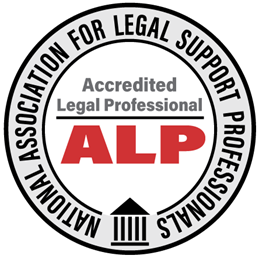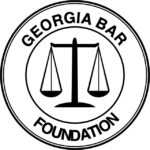Criminal Law
Criminal Law (CrL) Course
The second course in the Legal Services (LS) Pathway focuses on criminal trial and legal procudure. This course also prepares students for the ALP that is taken in the third course – Civil Law. This course provides an overview of the criminal law field. Students will learn fundamental concepts and skills relevant to understanding criminal law. Topics include search and seizure, criminal laws, analyzing statutes, legal research and writing, mock trials, and more.
Below is our new suggested course and support material.
Instructional Plans & Resources
LAPSEN Unit Plans
LAPSEN has a complete course (120-150 hours) of CrL unit lesson plans available to all educators due to a generous grant from the Georgia Bar Foundation – Click Here to access these
Other Lesson Plan Sources
California Educators Together– The great state of California has an insane amount of resources and lessons. Be sure to search with different key words. You do have to have an account – but they give them to all teachers: Click Here
Texas CTE Lesson Plans – They have some materials for Law & Public Safety: Click Here
Courts and Trials – Instructional support page from LAPSEN: Click Here
Industry Recognized Credentials (IRC) for this Pathway
These certifications satiate all Perkins legislative requirements for Industry Recognized Credentials. Order student certification tests – Click Here
 Accredited Legal Professional
Accredited Legal Professional
The legal services exam pathway provides students with the basic knowledge, skills, and experience to understand the legal system, the legal office and working in the legal field. The high school model can be implemented in 100-120 hours of class time. At the end of the course, students will be able to take the industry certification test. Students test in the third year course in the pathway – Civil Law.
To learn more about course materials, student testing, and classroom implementation: Click Here
To review the course outline covered to prepare students for the ALP certification – Click Here
Learn more about this IRC – email holly@lapsen.org
MicroCredentials (MC) for this Course
All MicroCredentials are being developed and should be ready in soon.

Criminal Law (CrL) Course Standards
Click Here to open the CrL standards document.
Section 1: Legal Careers
Objective 1: Describe the various careers available in the field of criminal law
Objective 2: Demonstrate job interview skills and interview preparation steps
Section 2: Legal Skills - Research and Writing
Objective 1: Research precedent that applies to criminal justice
Objective 2: Present legal conclusions based on precedent and statutes
Objective 3: Draft legal motions
Section 3: Substantive Criminal Law
Objective 1: Describe important components necessary to proving a criminal charge
Objective 2: Describe the elements required to prove common criminal charges and defenses
Objective 3: Explain how crimes are classified
Objective 4: Apply criminal law statutes to fact patterns to determine if a crime has been committed
Section 4: Search and seizure of property
Objective 1: Explain major components of the 4th amendment
Objective 2: Describe what a search warrant is and how it is used
Objective 3: Describe important exceptions to 4th amendment search requirements
Objective 4: Apply 4th amendment standards to search scenarios
Section 5: Arrests and Stops
Objective 1: Describe standards of proof that apply to arrests and stops
Objective 2: Describe how the 4th amendment applies to arrests and stops
Objective 3: Apply 4th amendment standards to arrest scenarios
Section 6: Confessions and Miranda Law
Objective 1: Explain important precedent governing interrogation law
Objective 2: Apply Miranda standards to questioning and confession scenarios
Section 7: Criminal Pre-Trial and Trials
Objective 1: Explain the function of major hearings in the criminal pretrial process
Objective 2: Explain common pretrial motions
Objective 3: Describe constitutional rights that apply in criminal trials
Section 8: Criminal Law Offices
Objective 1: Demonstrate an understanding of how a law office operates
Objective 2: Describe how income is generated in a law office and what costs are incurred at a law office
Section 9: Criminal mock trials to enhance legal analysis, writing, and communication
Objective 1: Describe the mock trial process and legal documents contained in a mock trial case
Objective 2: Analyze case materials to determine what information is helpful and harmful to proving a case
Objective 3: Draft witness examination questions and answers using professional language and grammar
Objective 4: Demonstrate substantive trial skills in an organized and professional manner
Objective 5: Analyze and interpret legal documents and laws to develop conclusions in a case
Objective 6: Convey relevant legal information in an organized and cohesive opening statement or closing argument
Objective 7: Present a well organized trial presentation that utilizes professional language and focuses on satisfying all applicable legal standards
Section 10: Criminal case sentencing and post-trial
Objective 1: Demonstrate an understanding of the sentence phase in a criminal case
Objective 2: Describe plea agreements and how they are used in a criminal case
Objective 3: Describe how a criminal appeal operates
The lesson plans for the legal services pathway were created, in part, from a generous grant from the
Georgia Bar Foundations’ IOLTA Grant.
